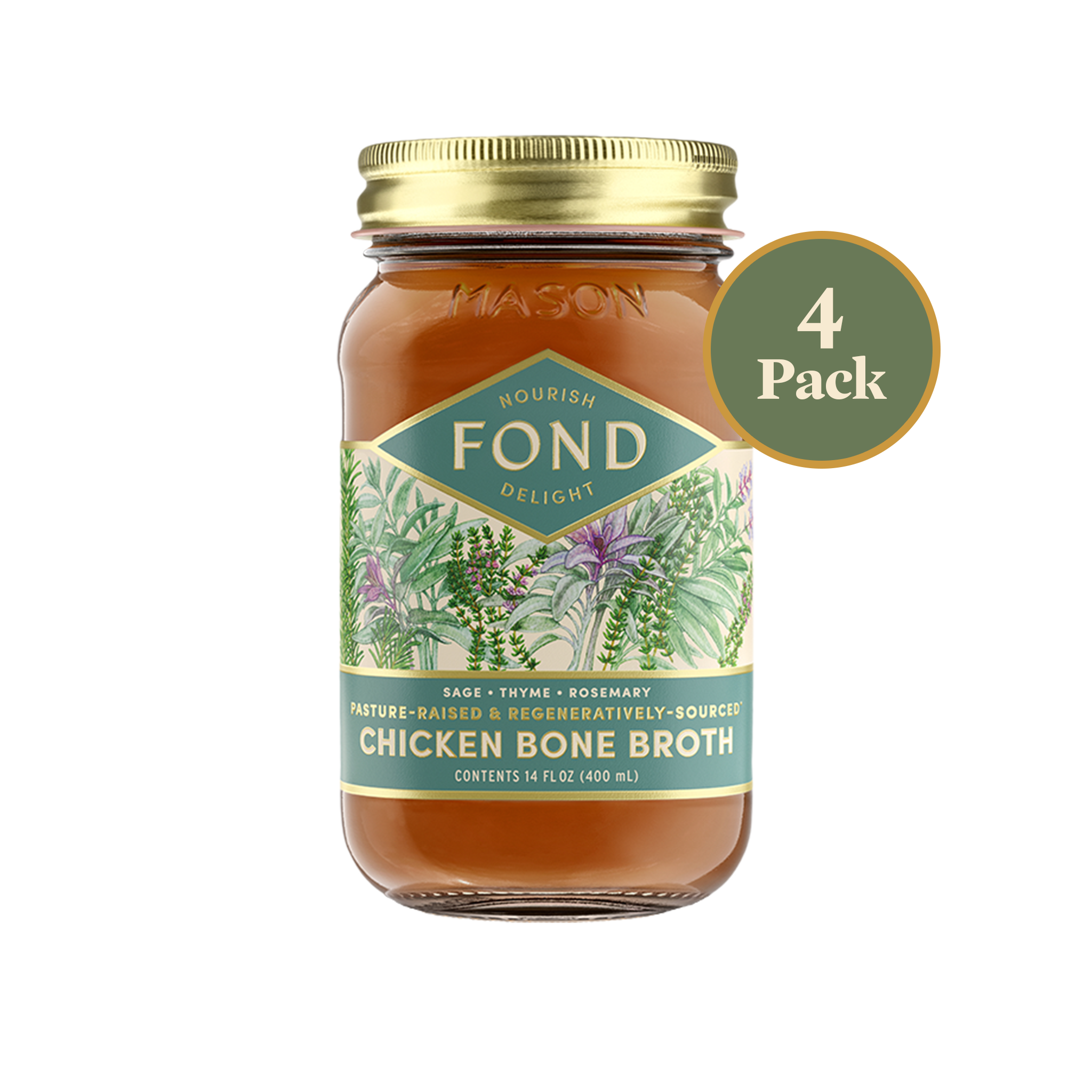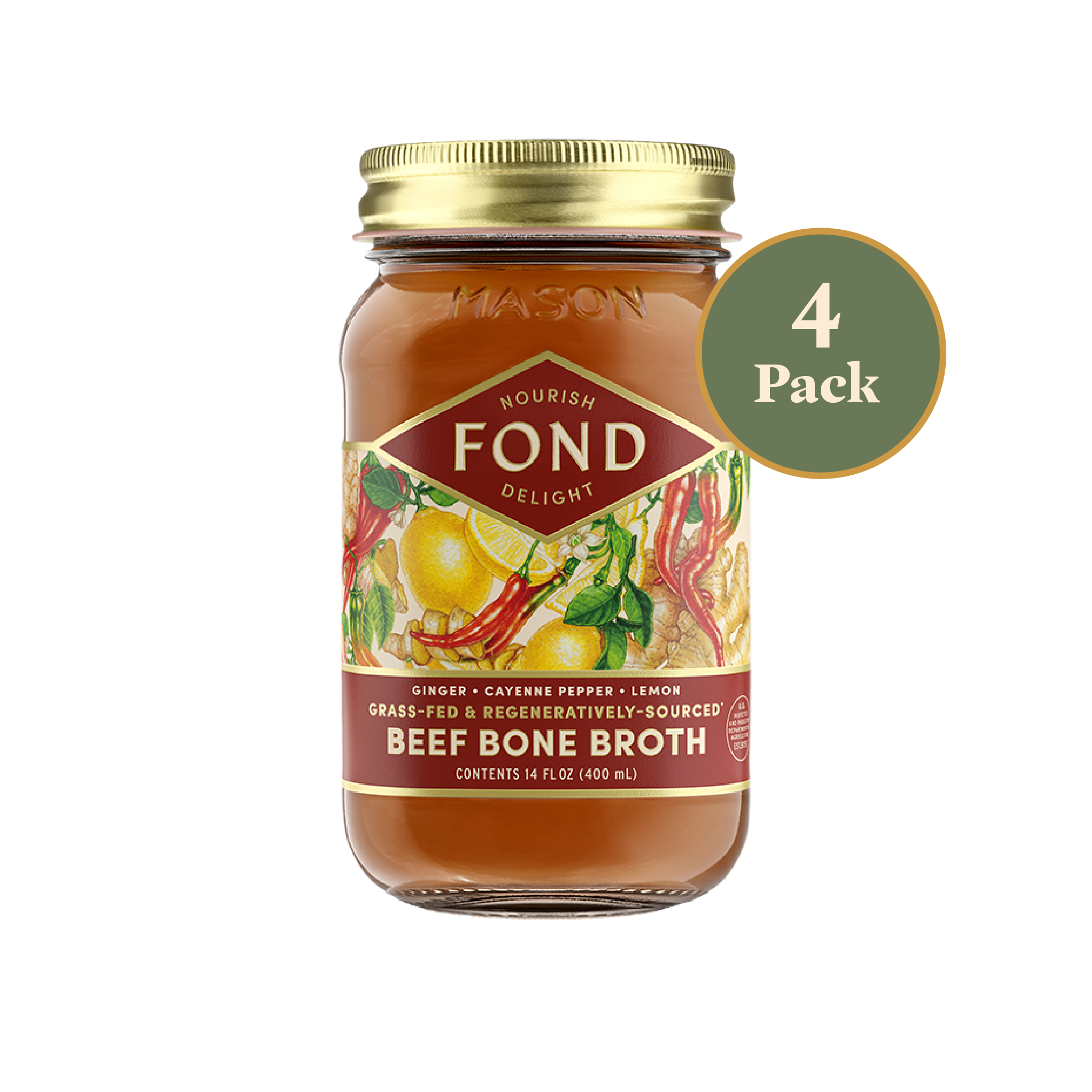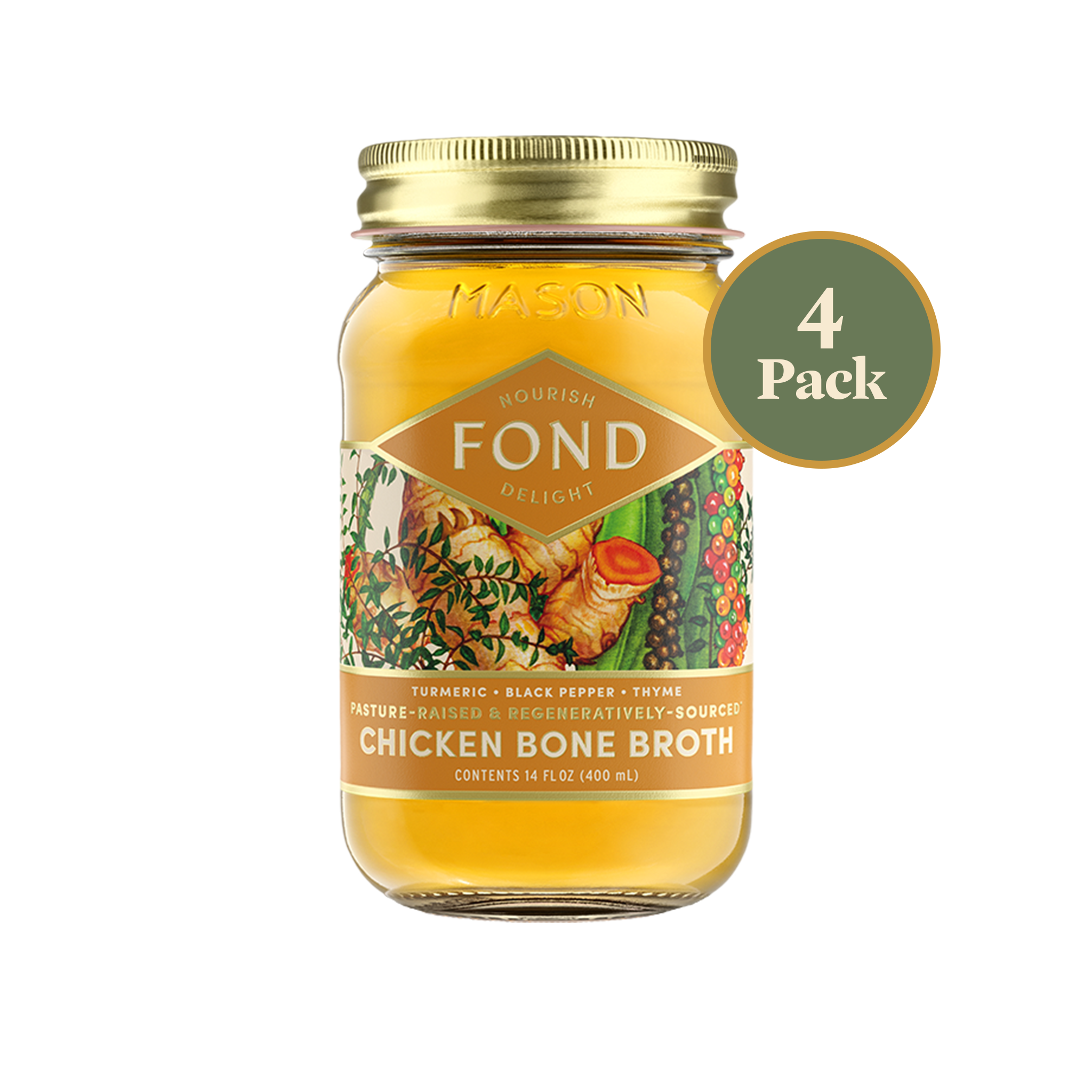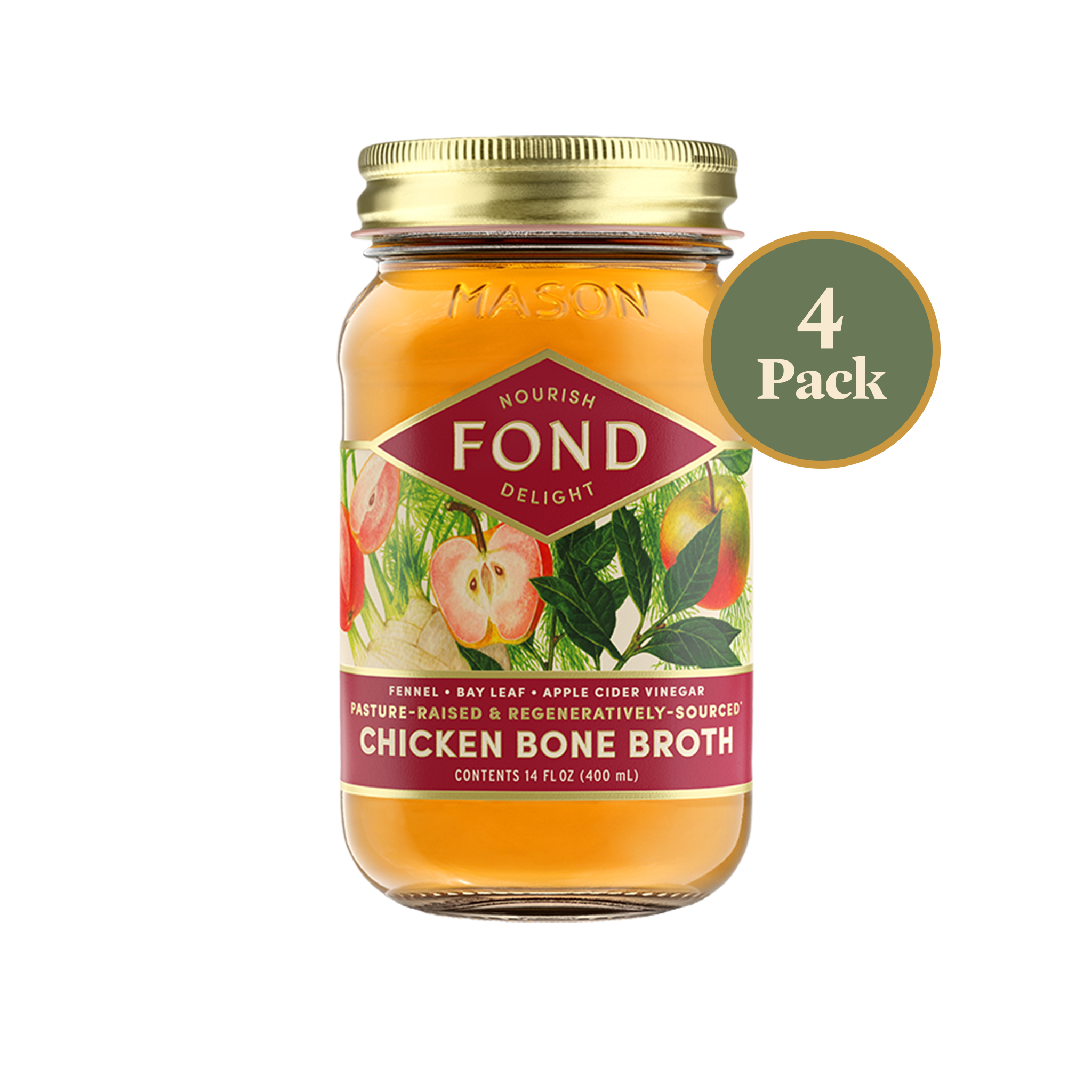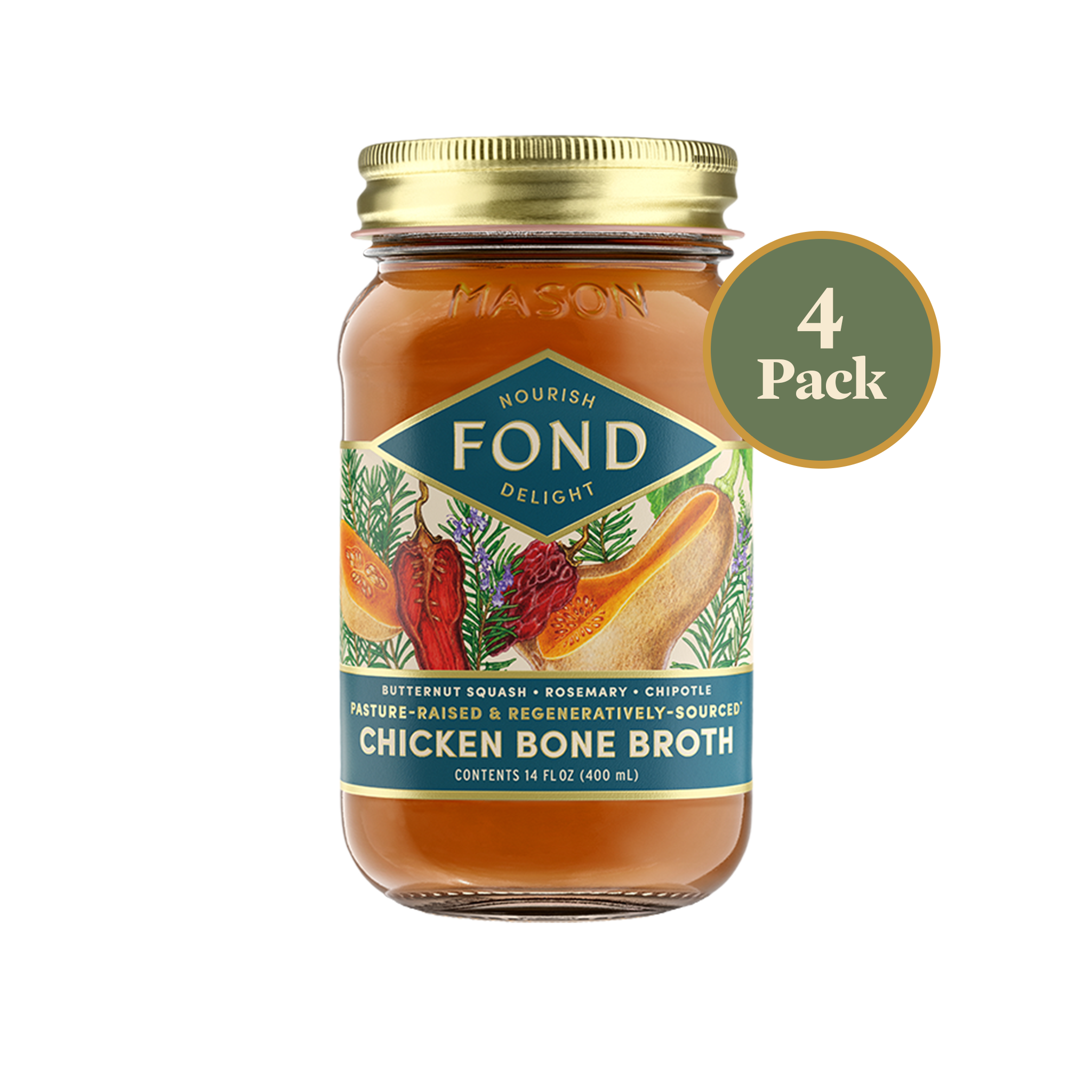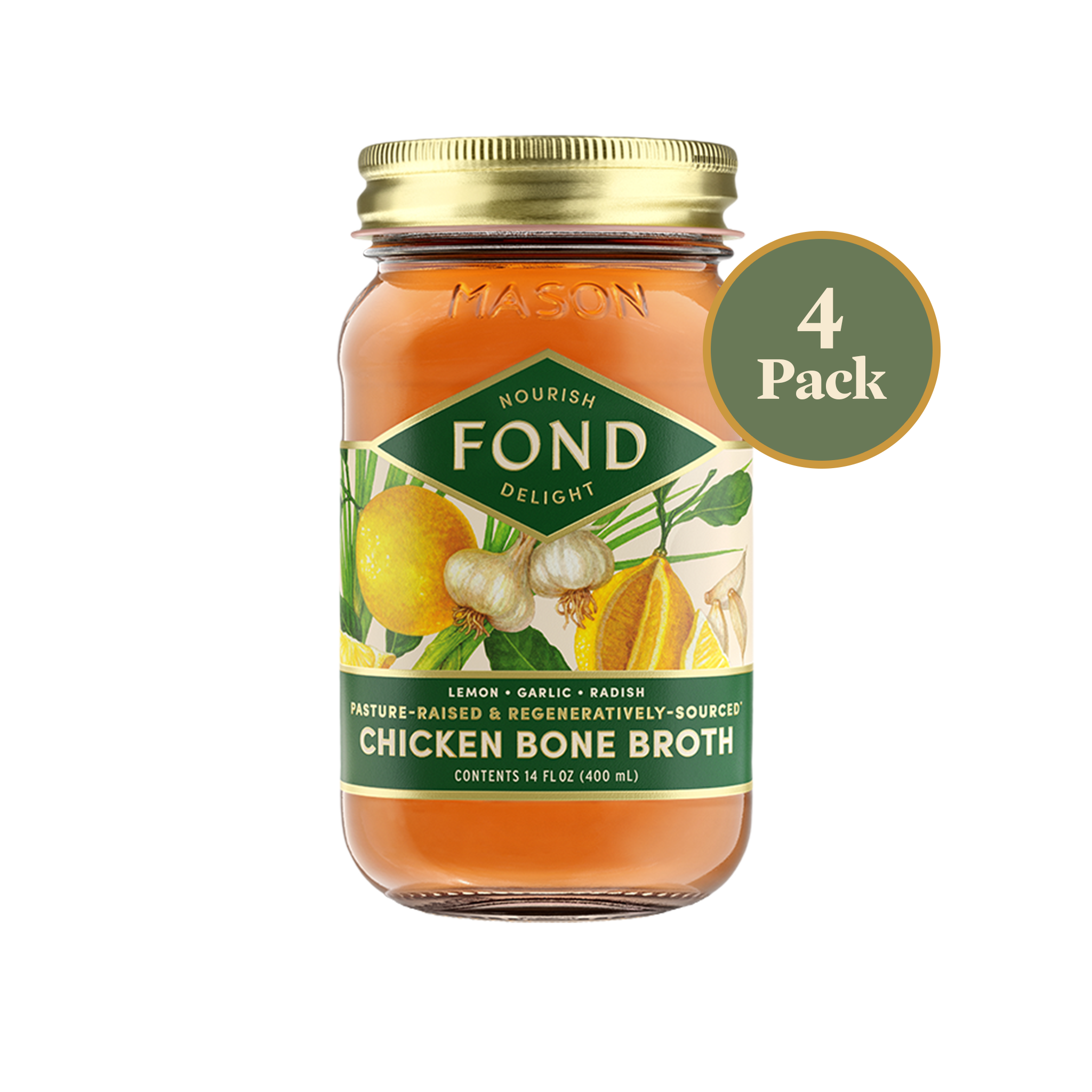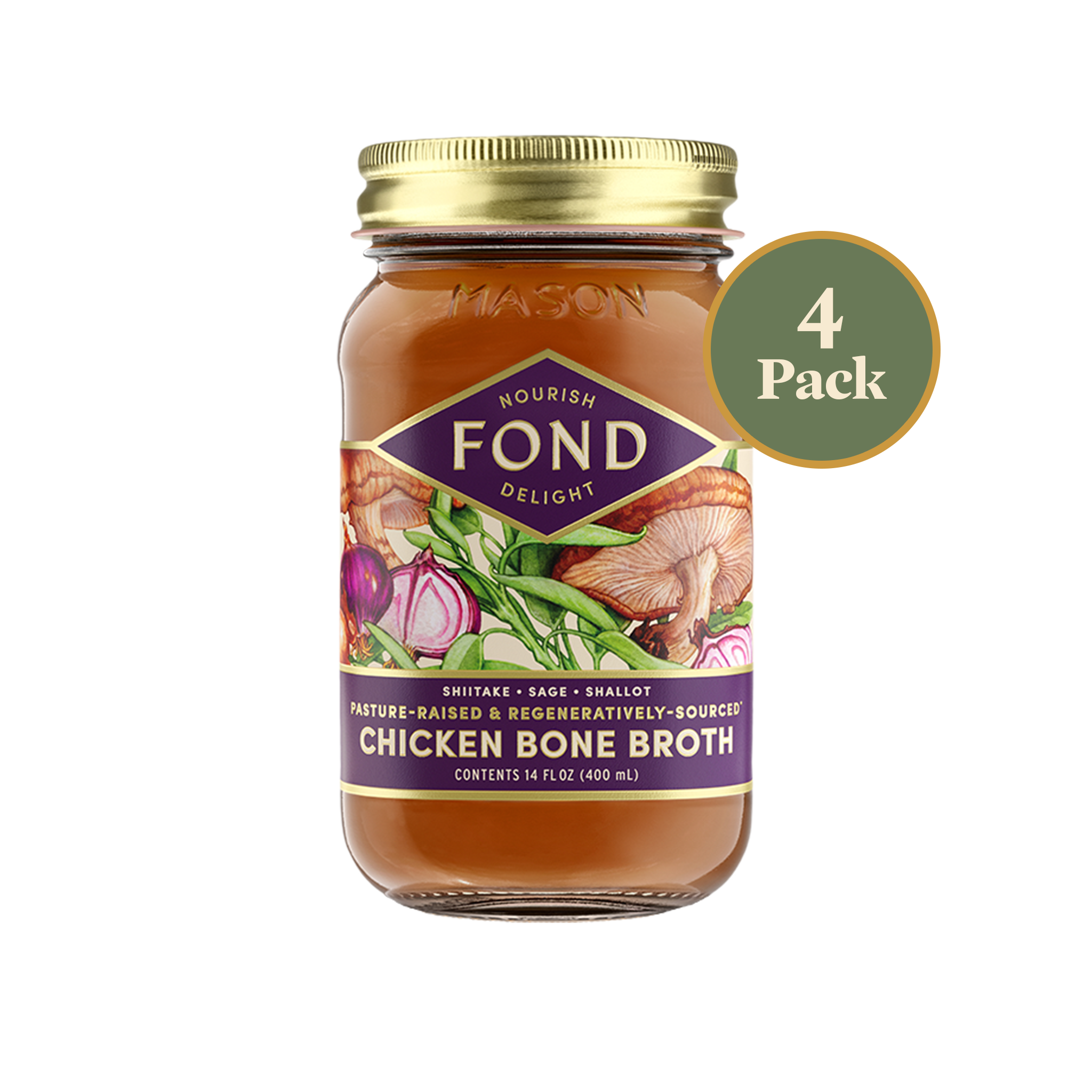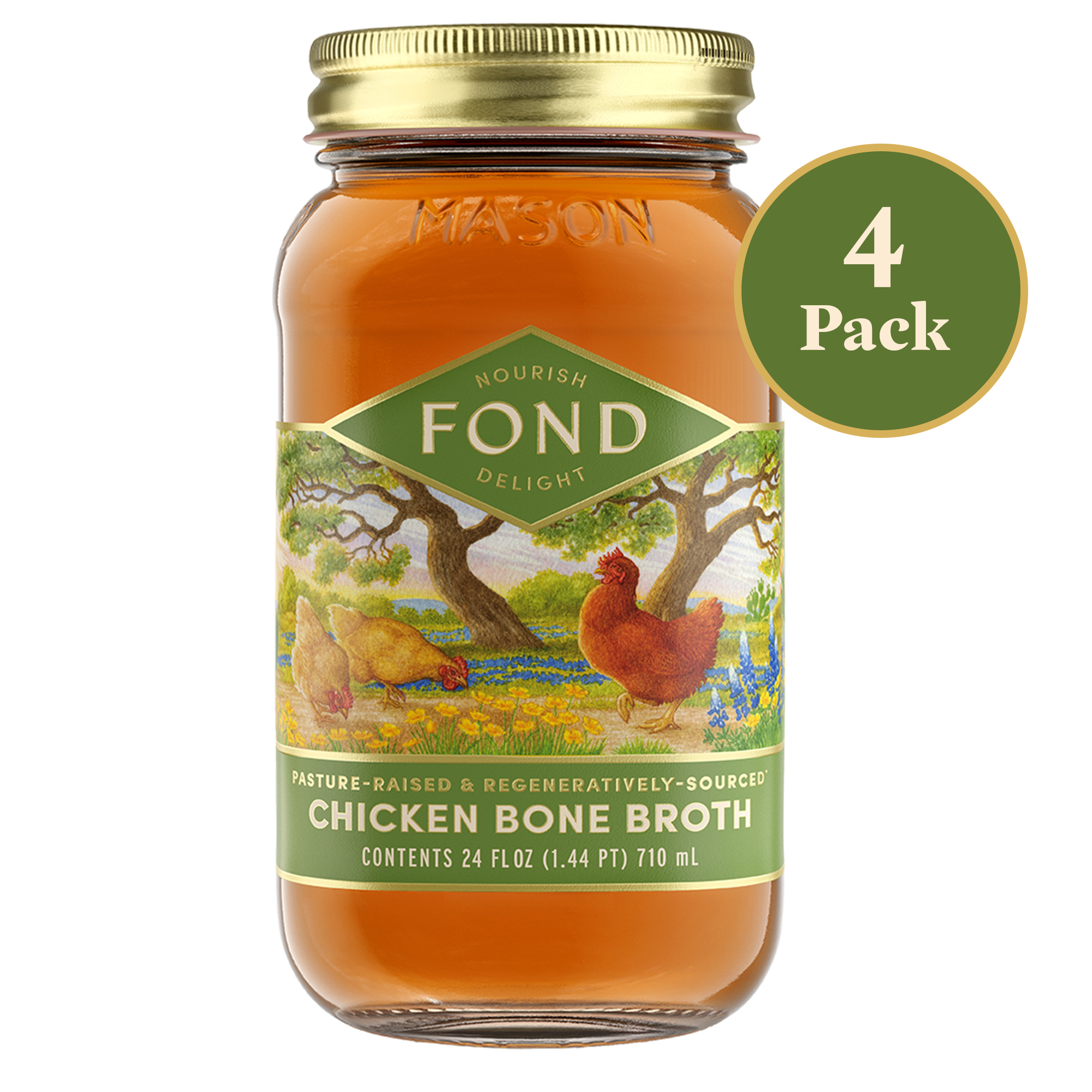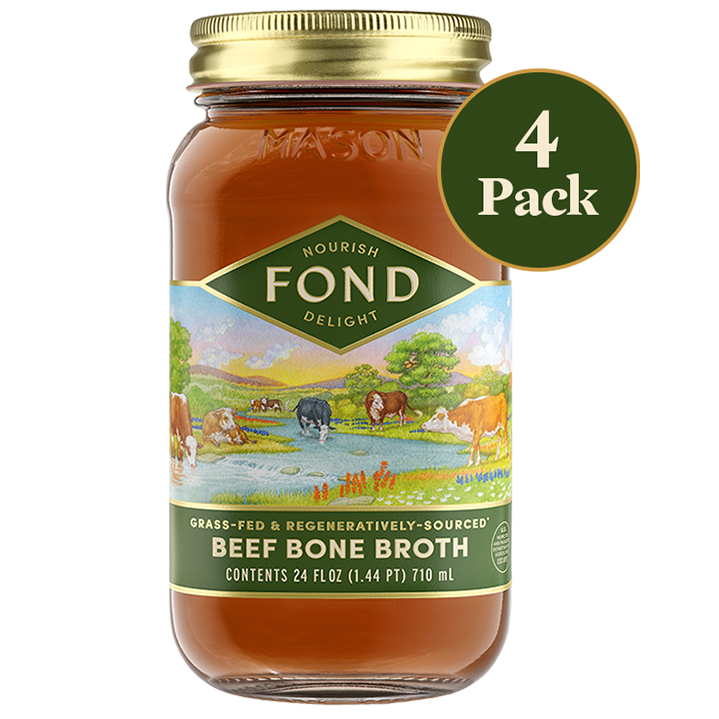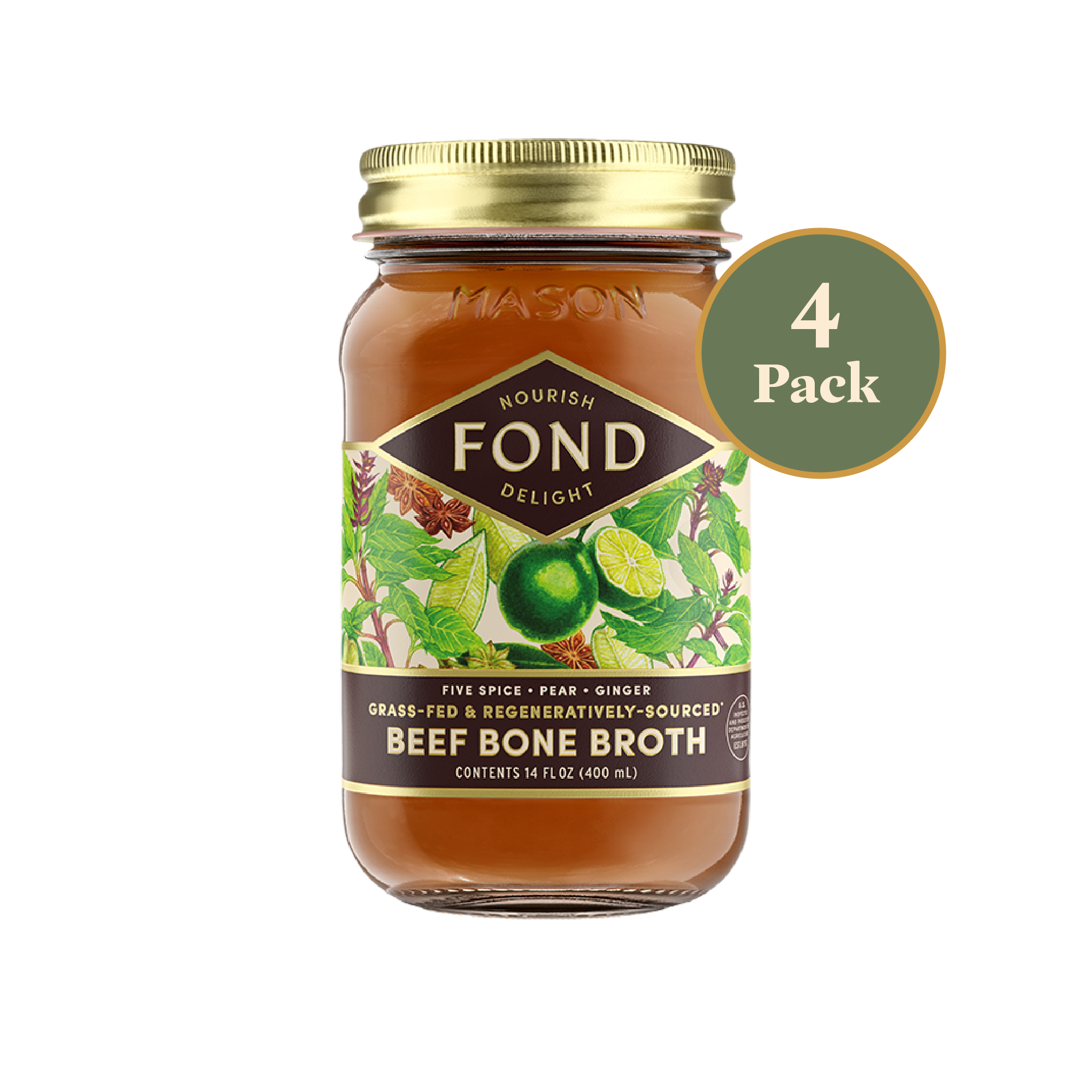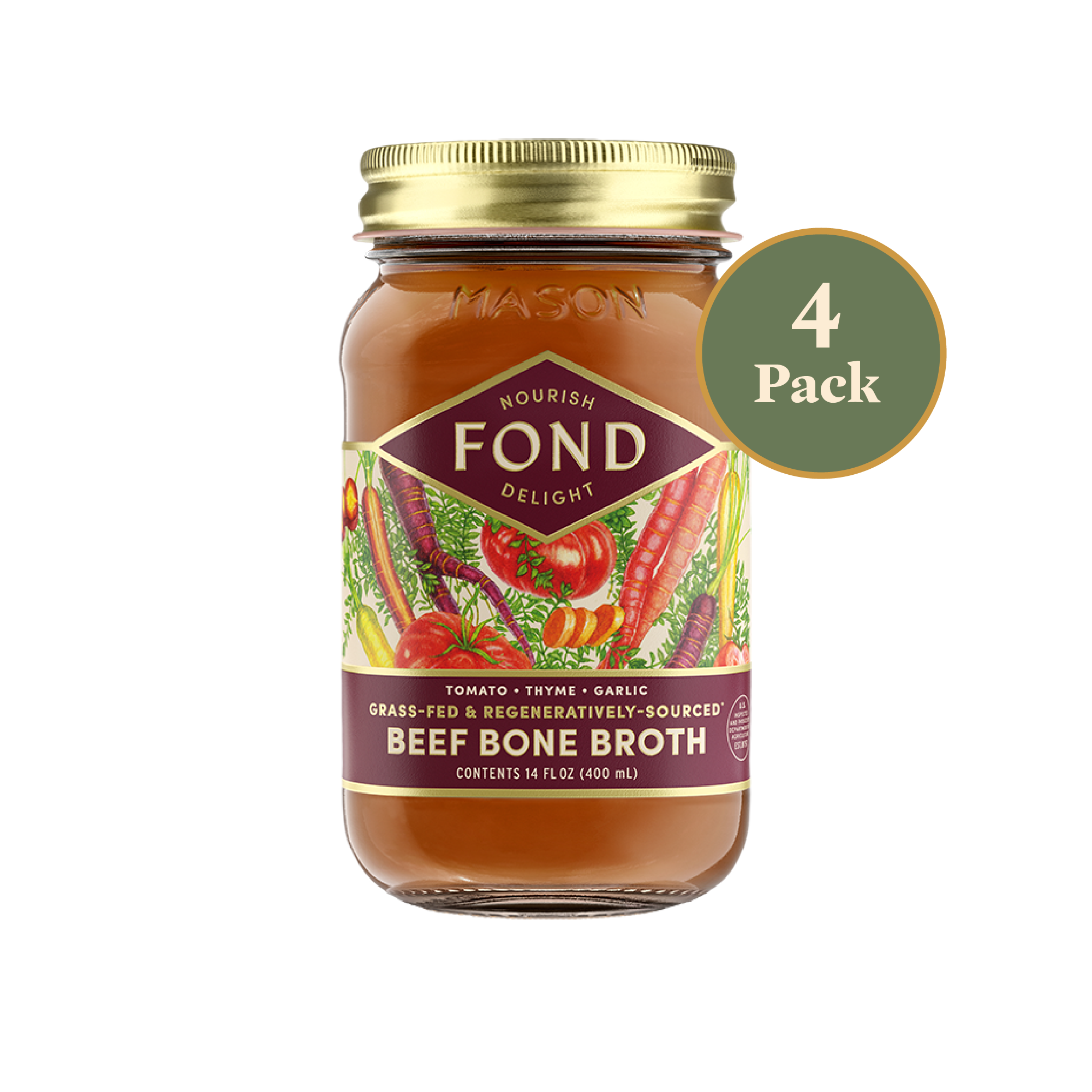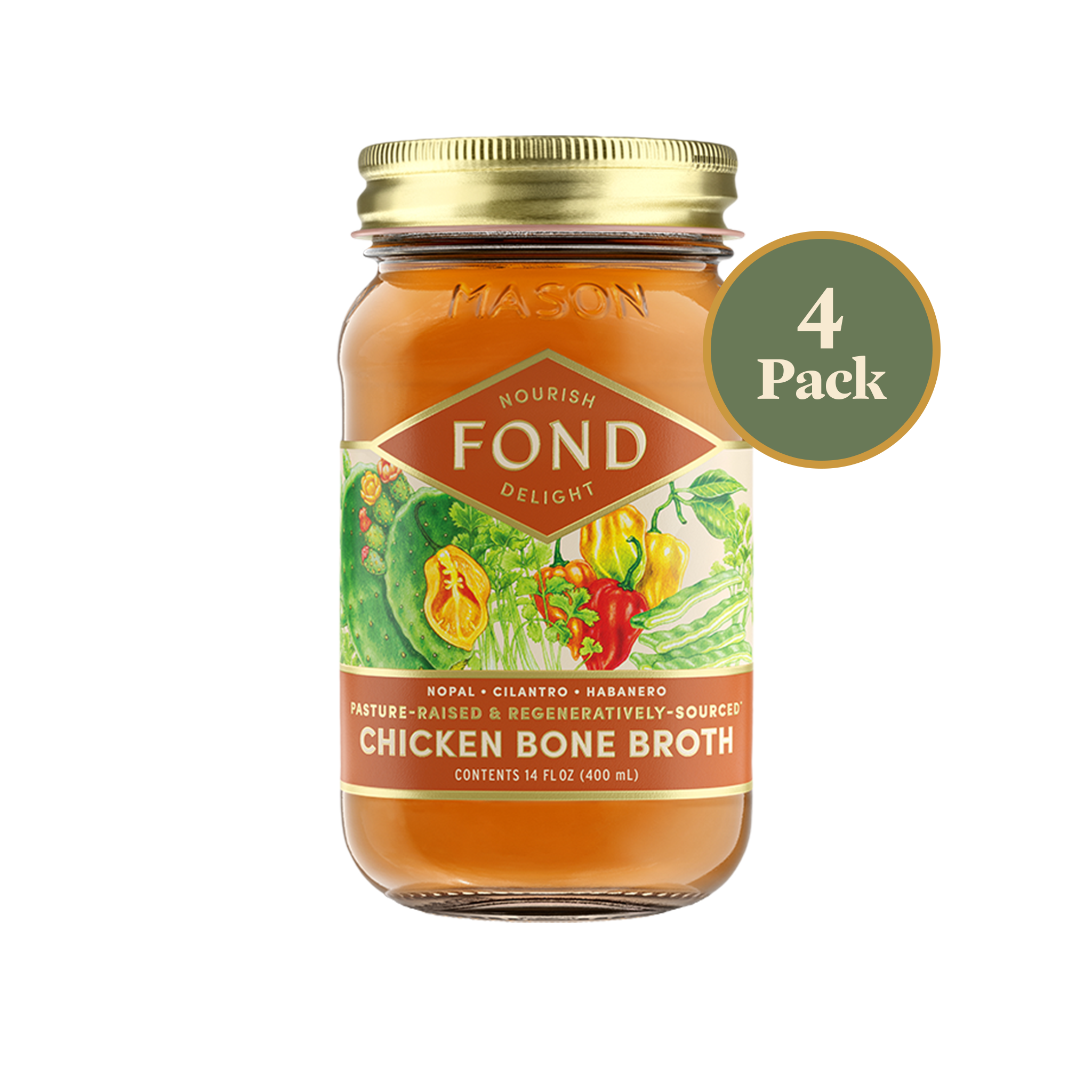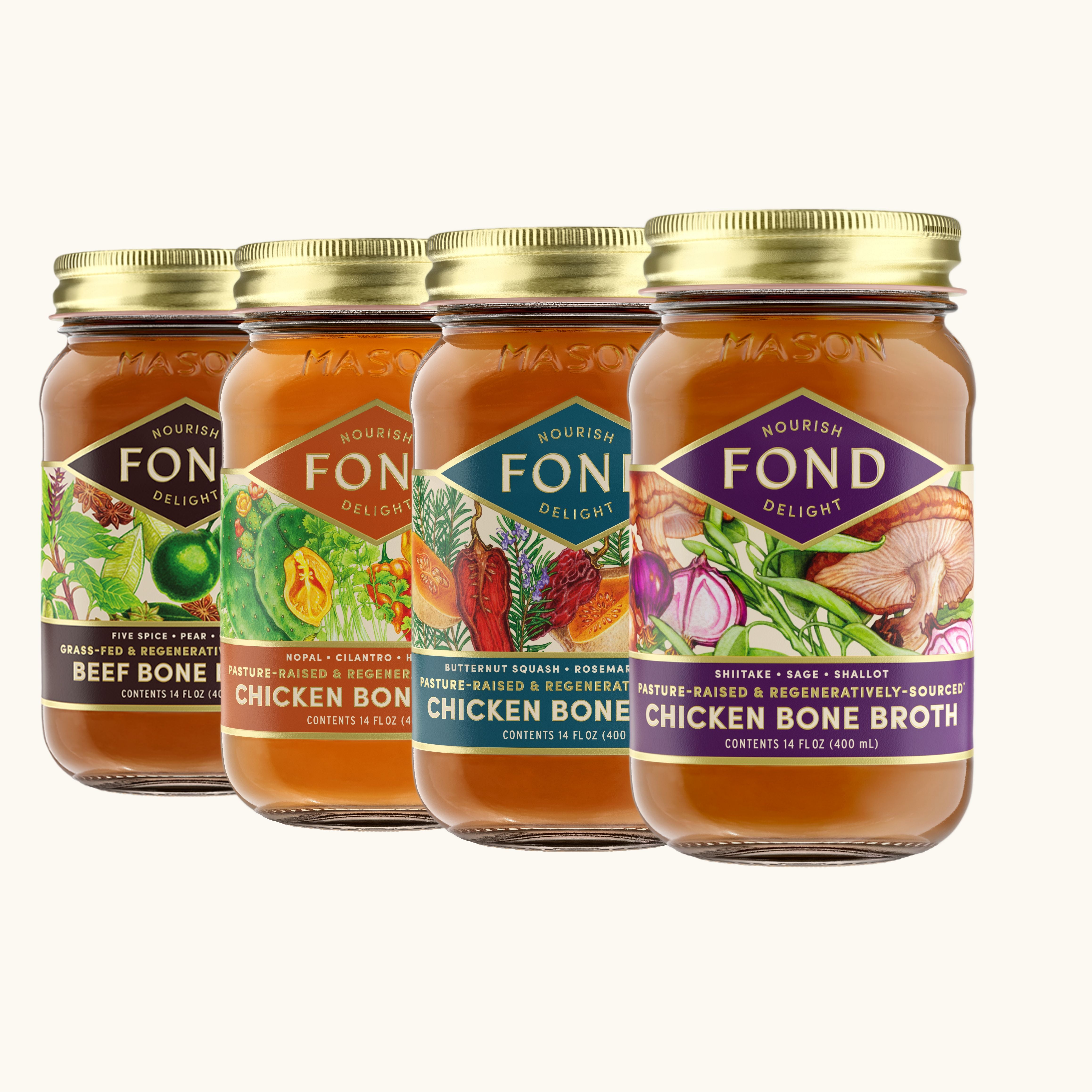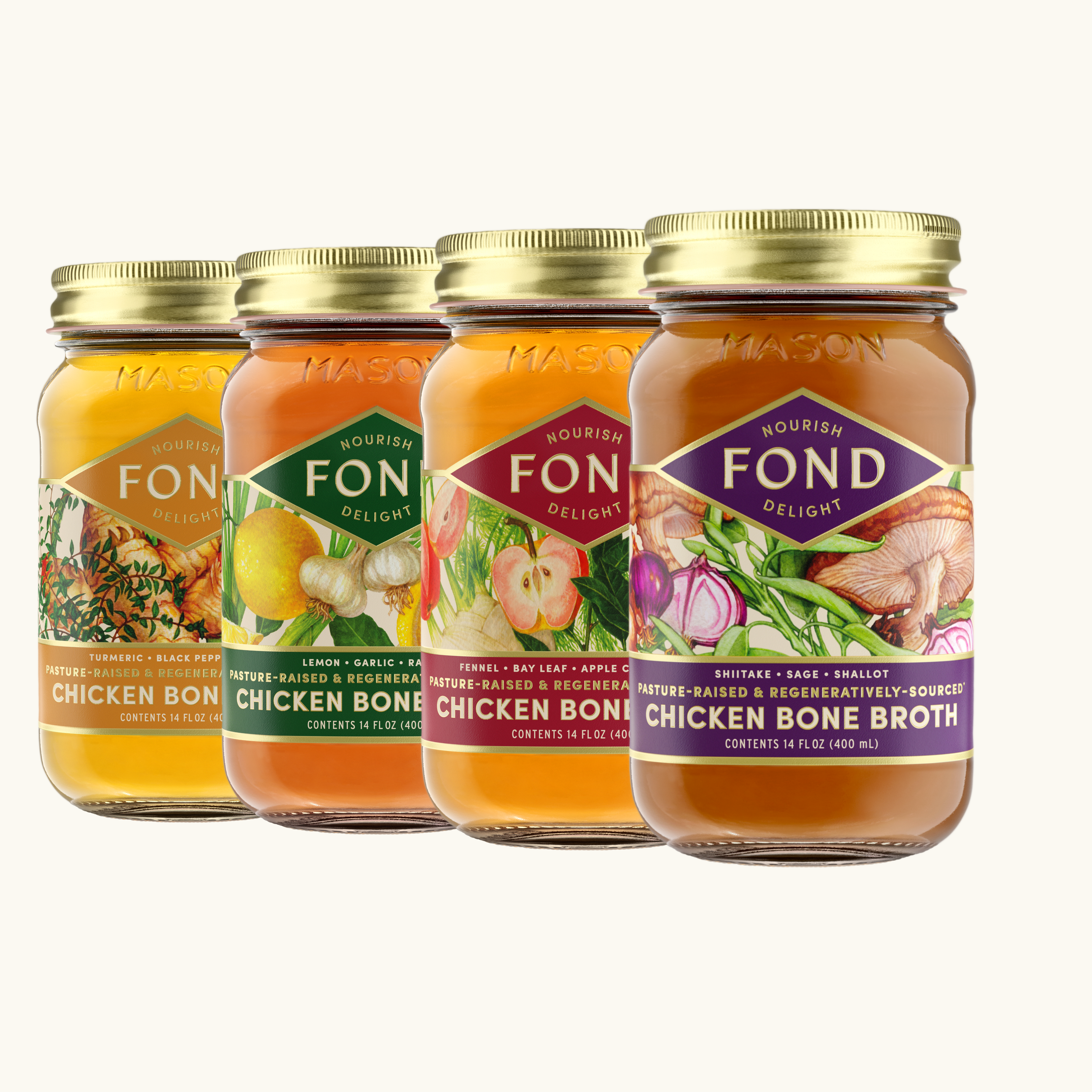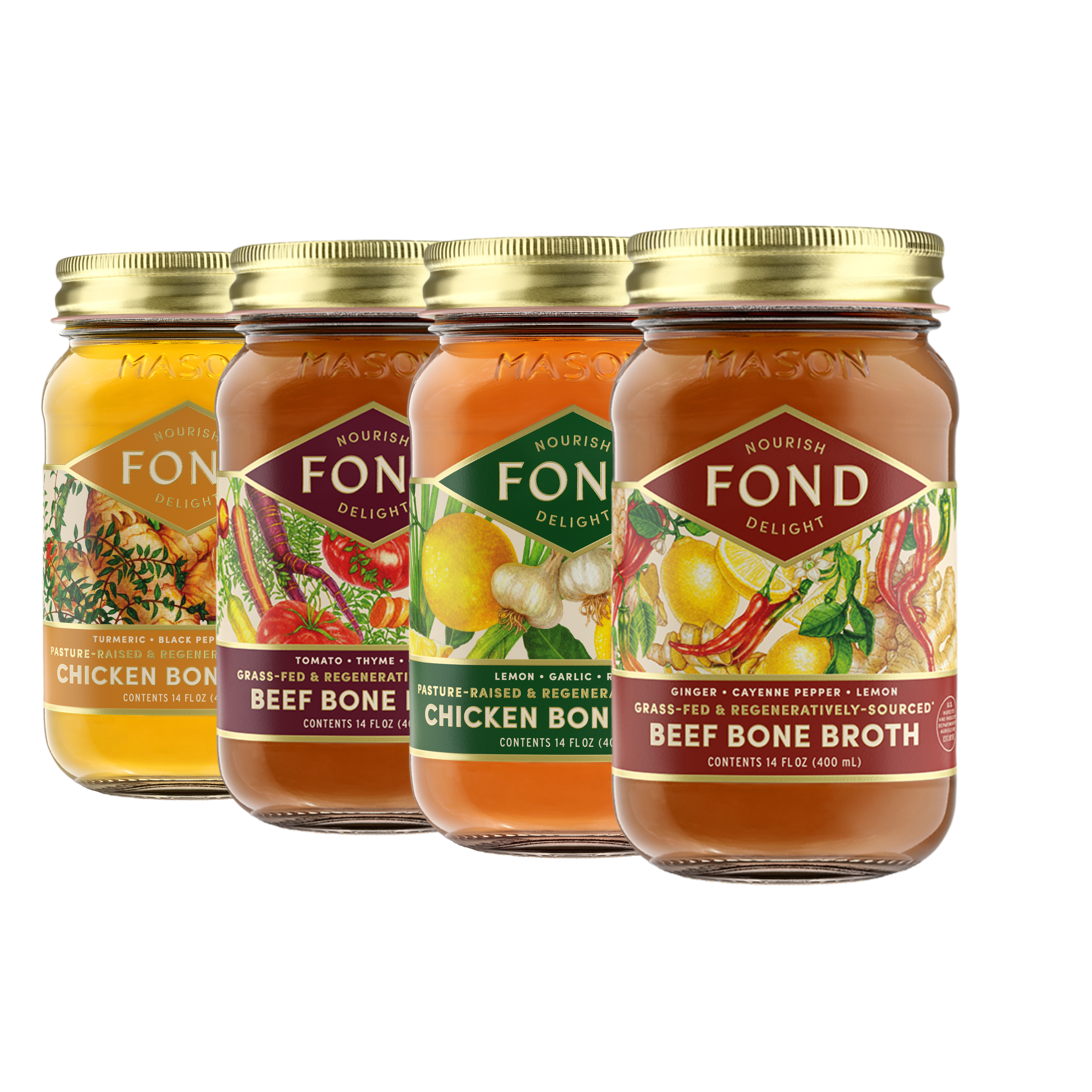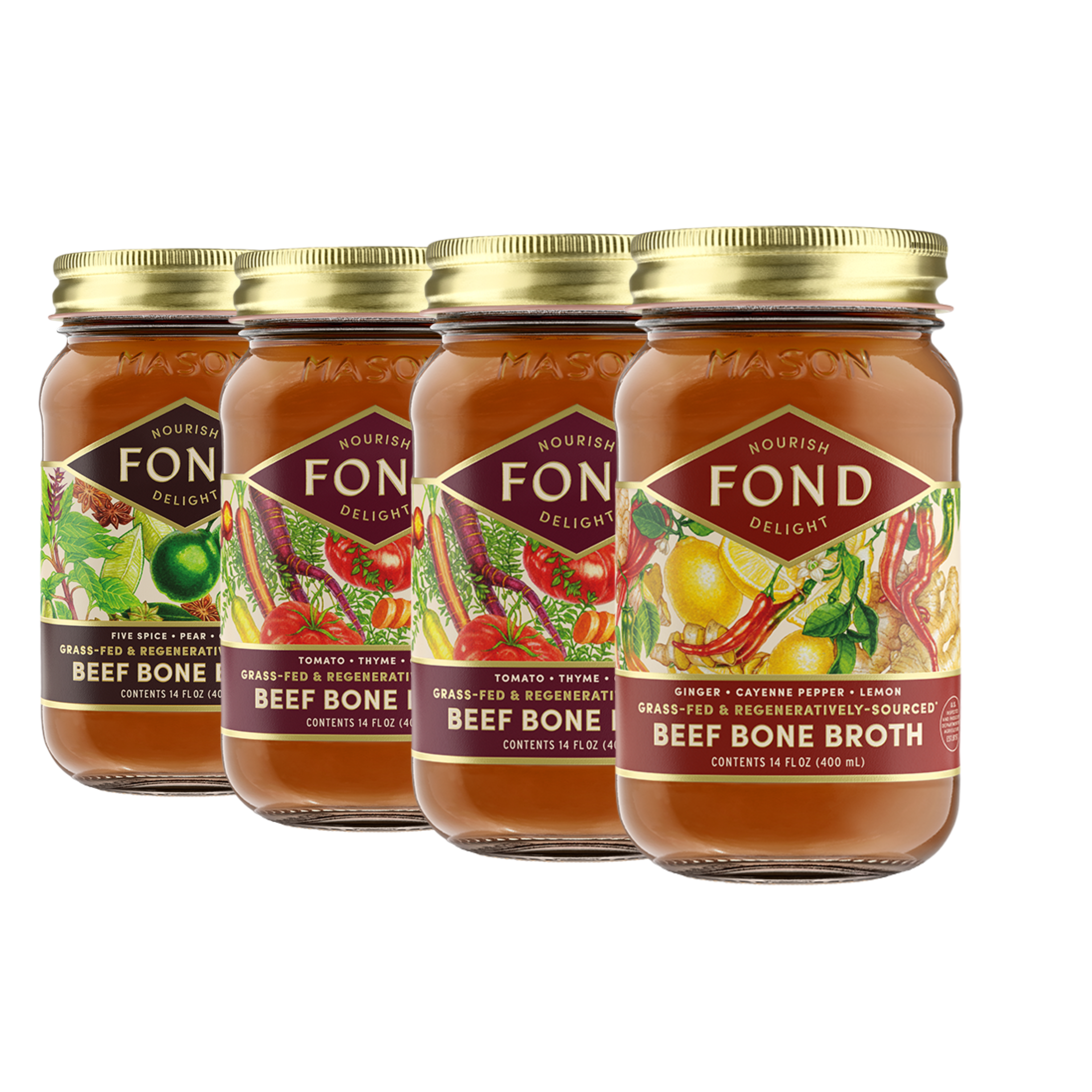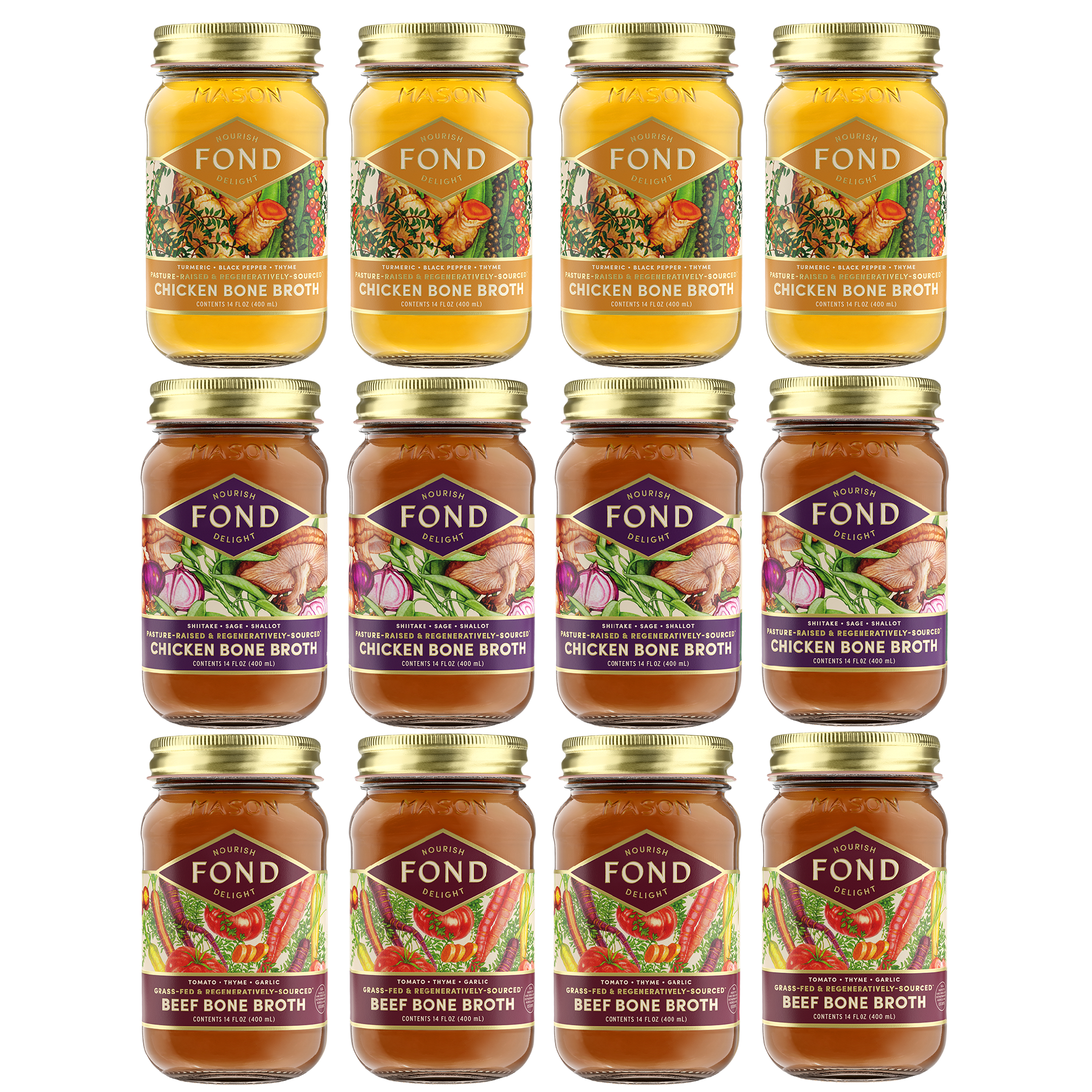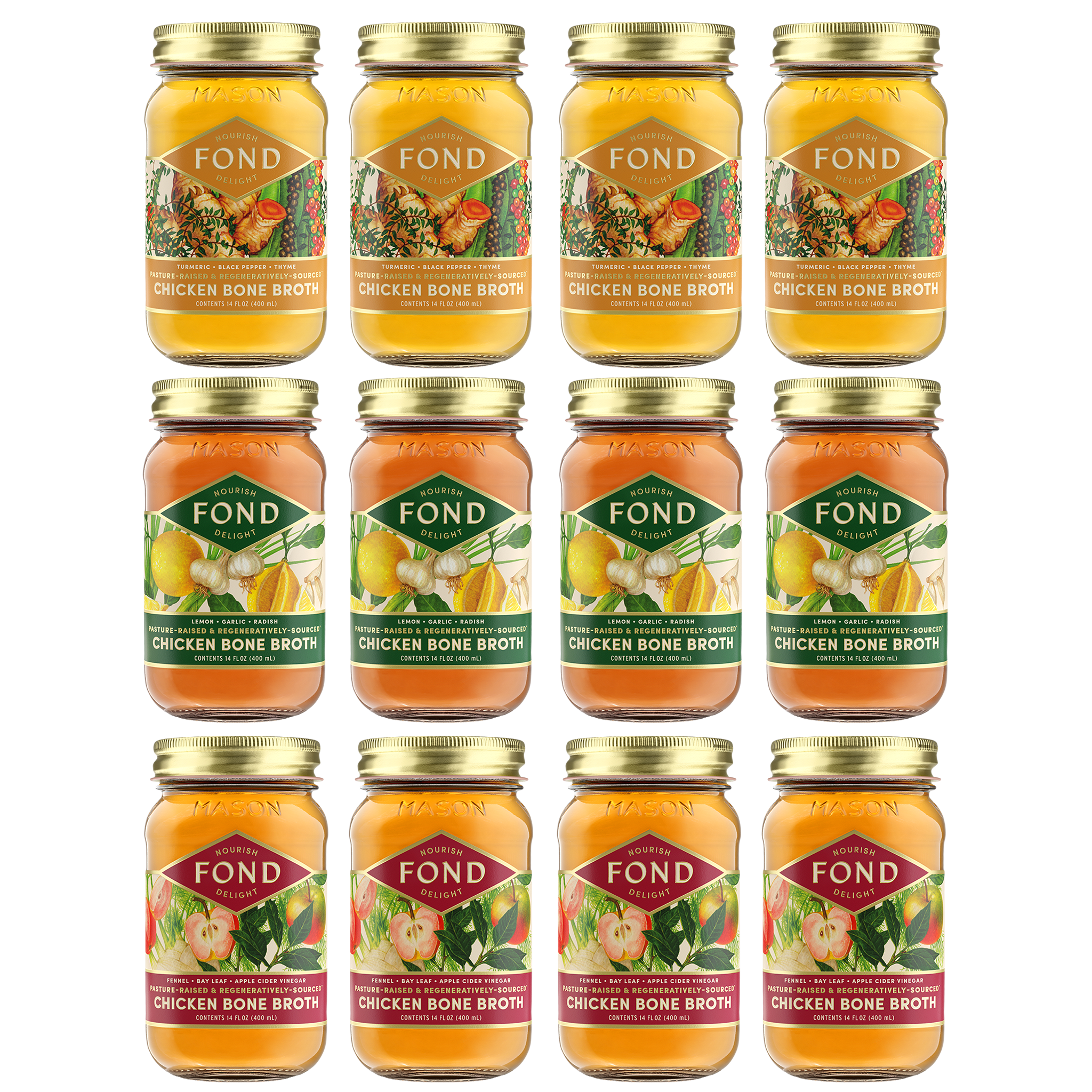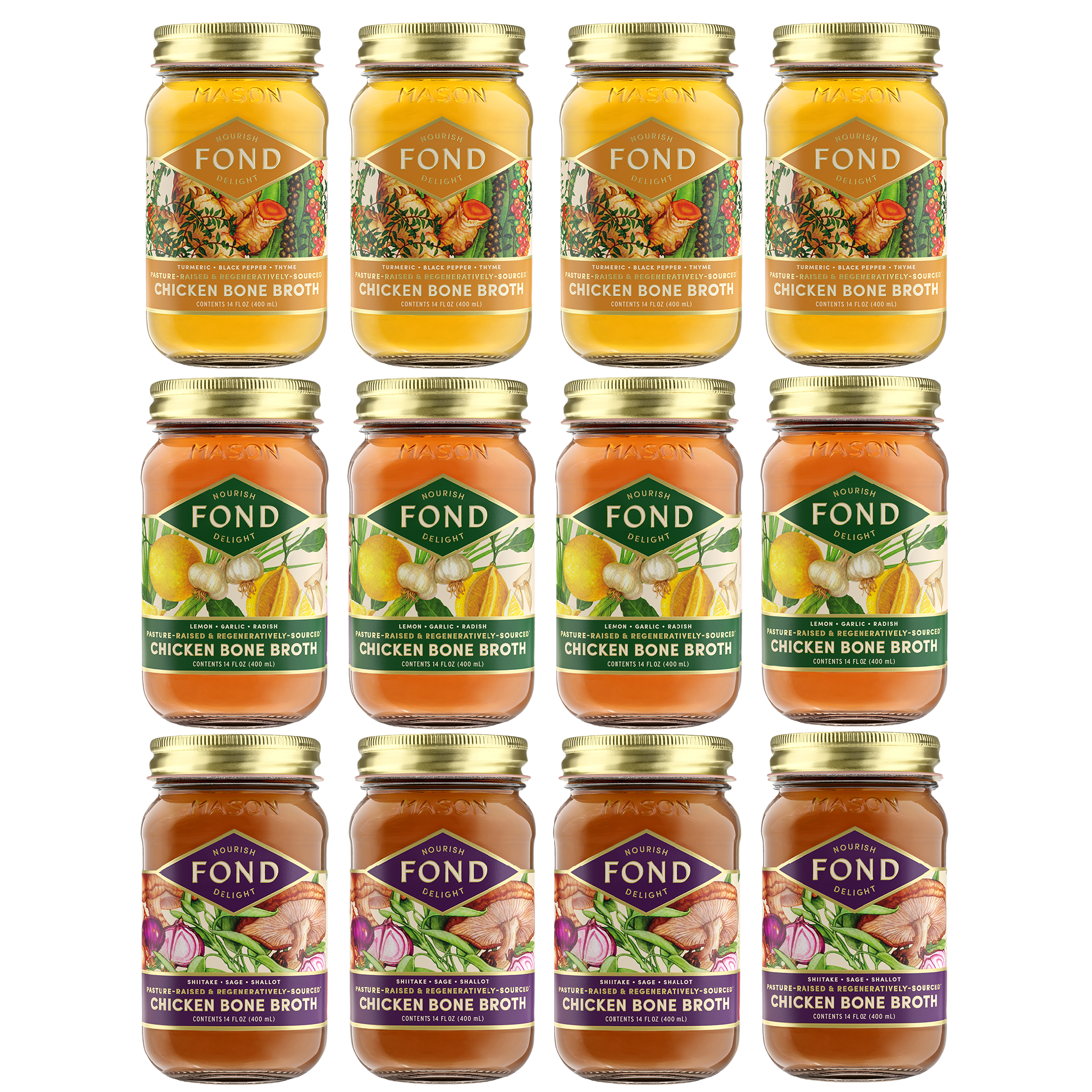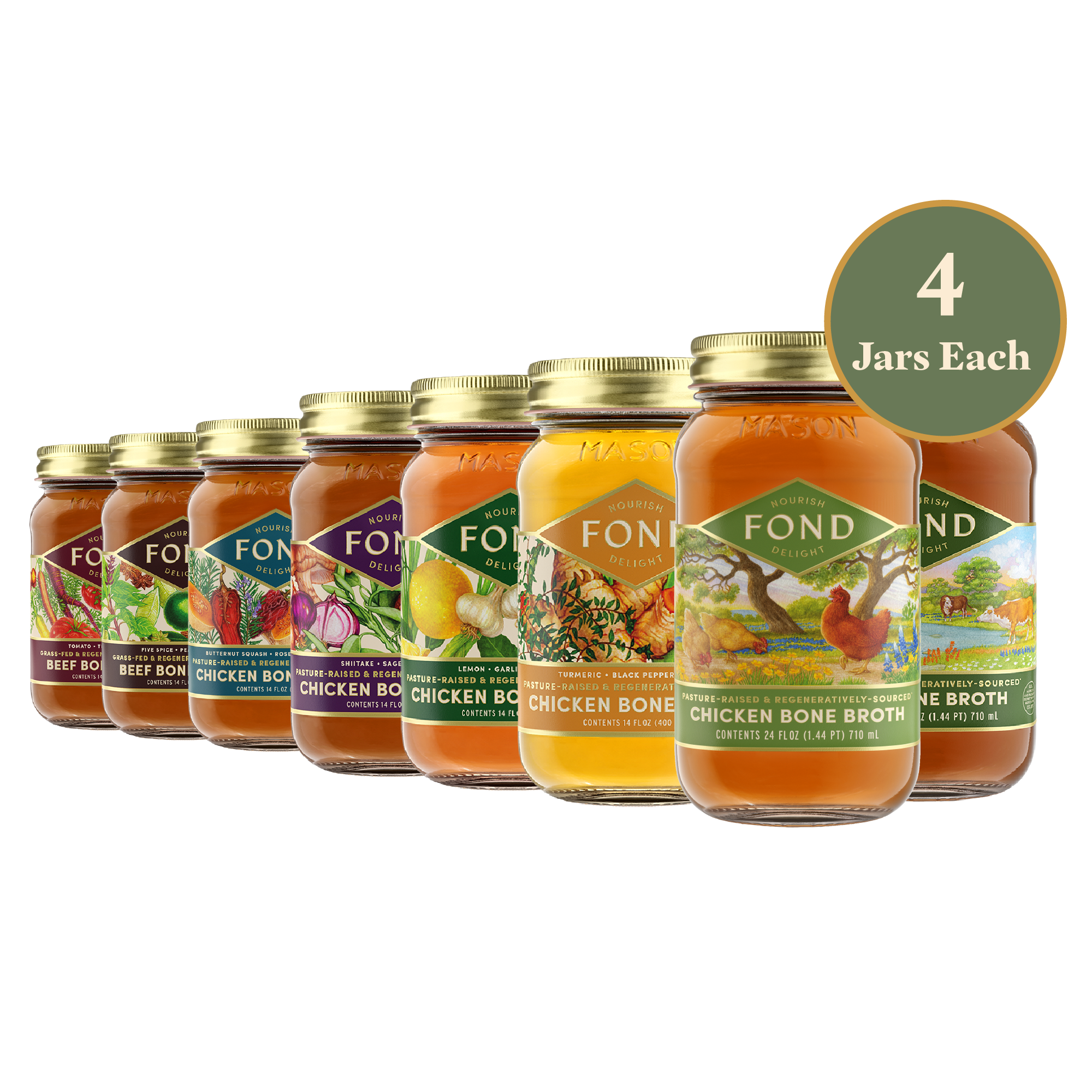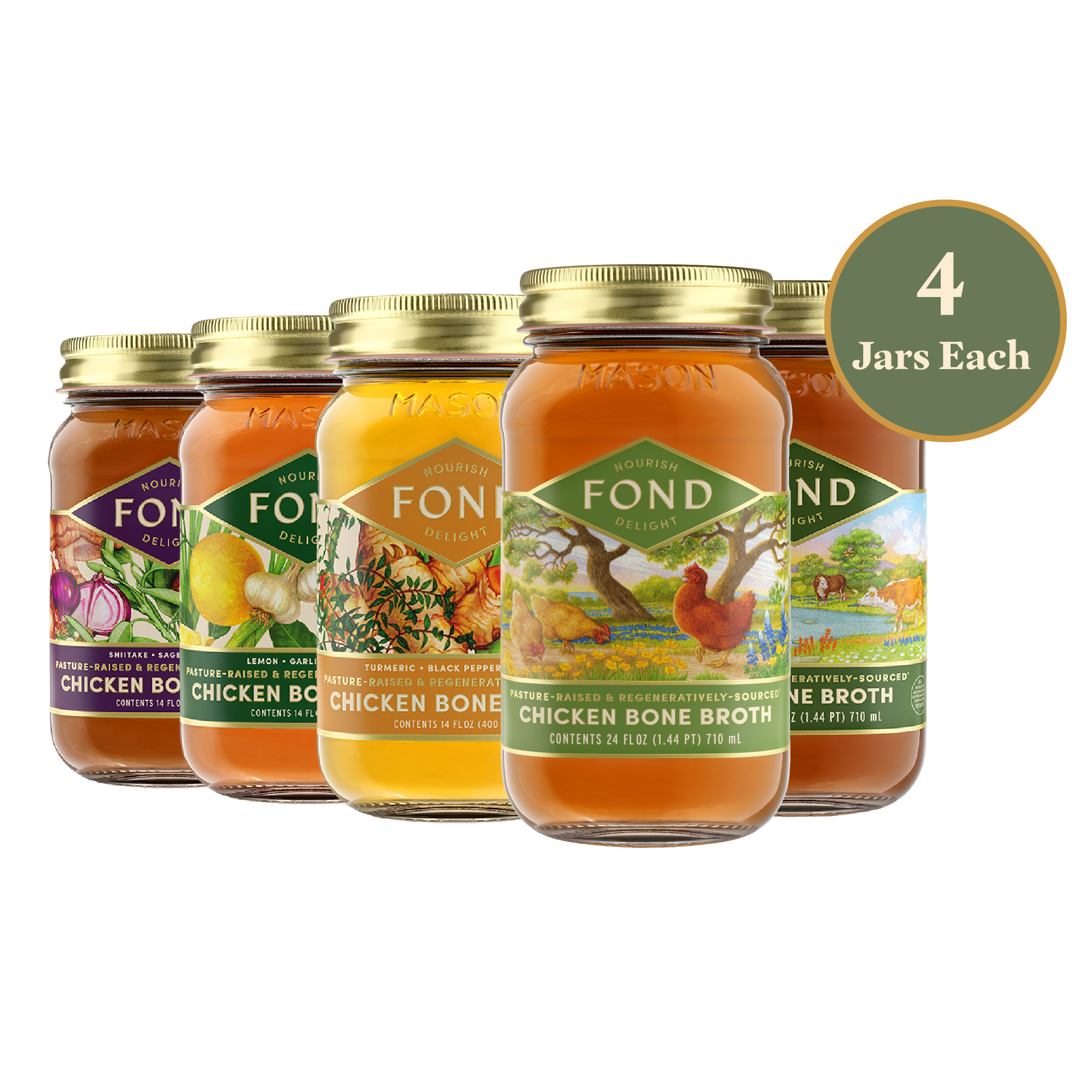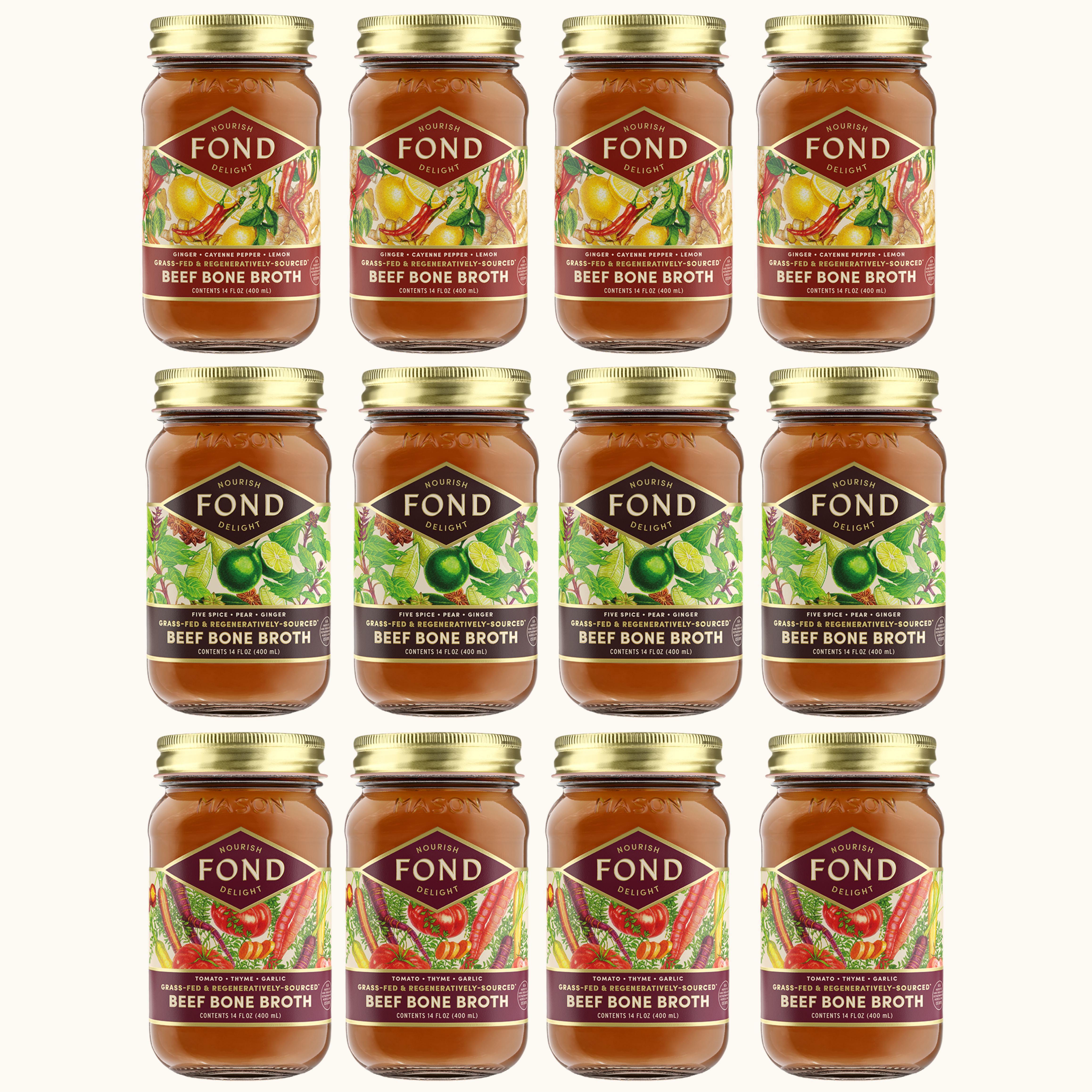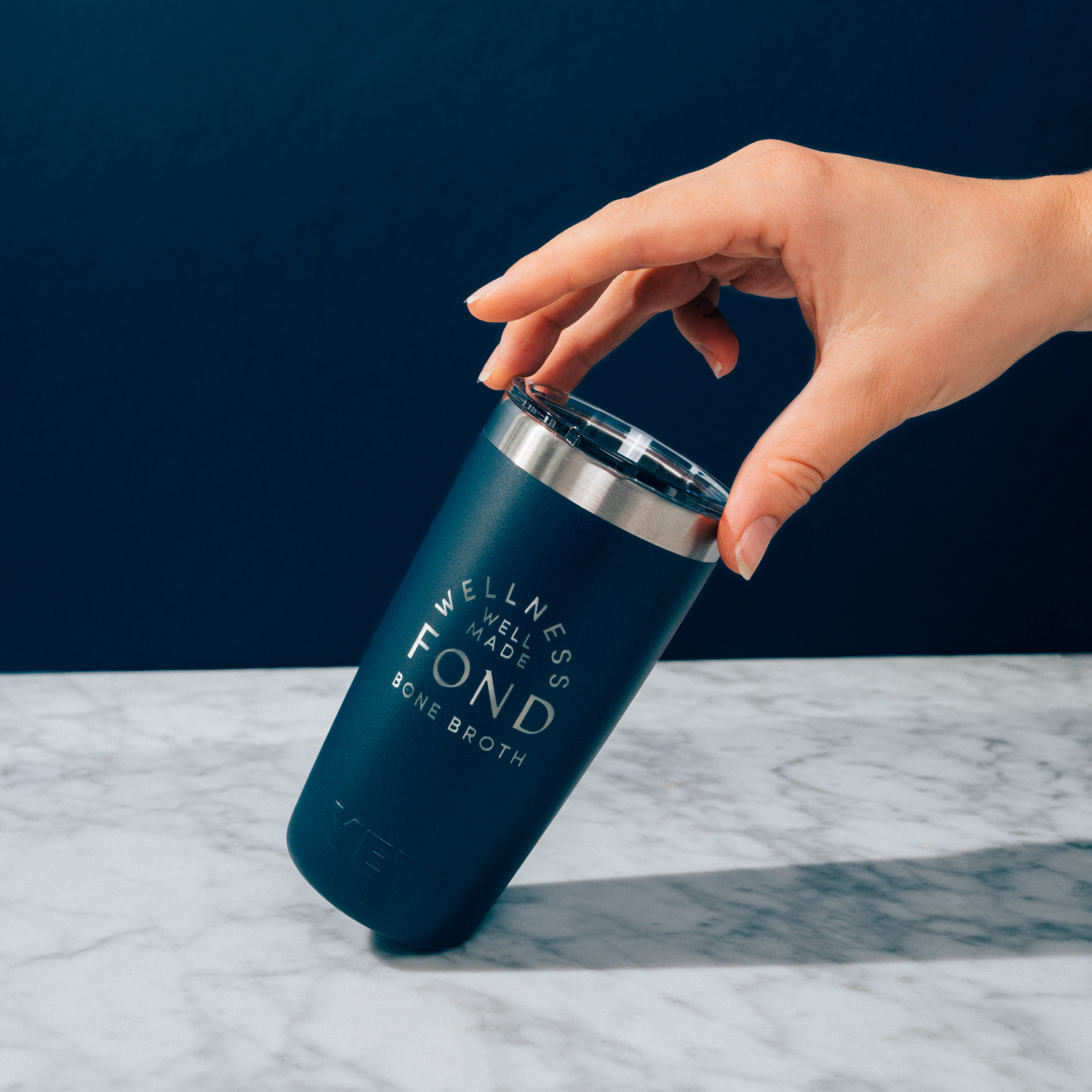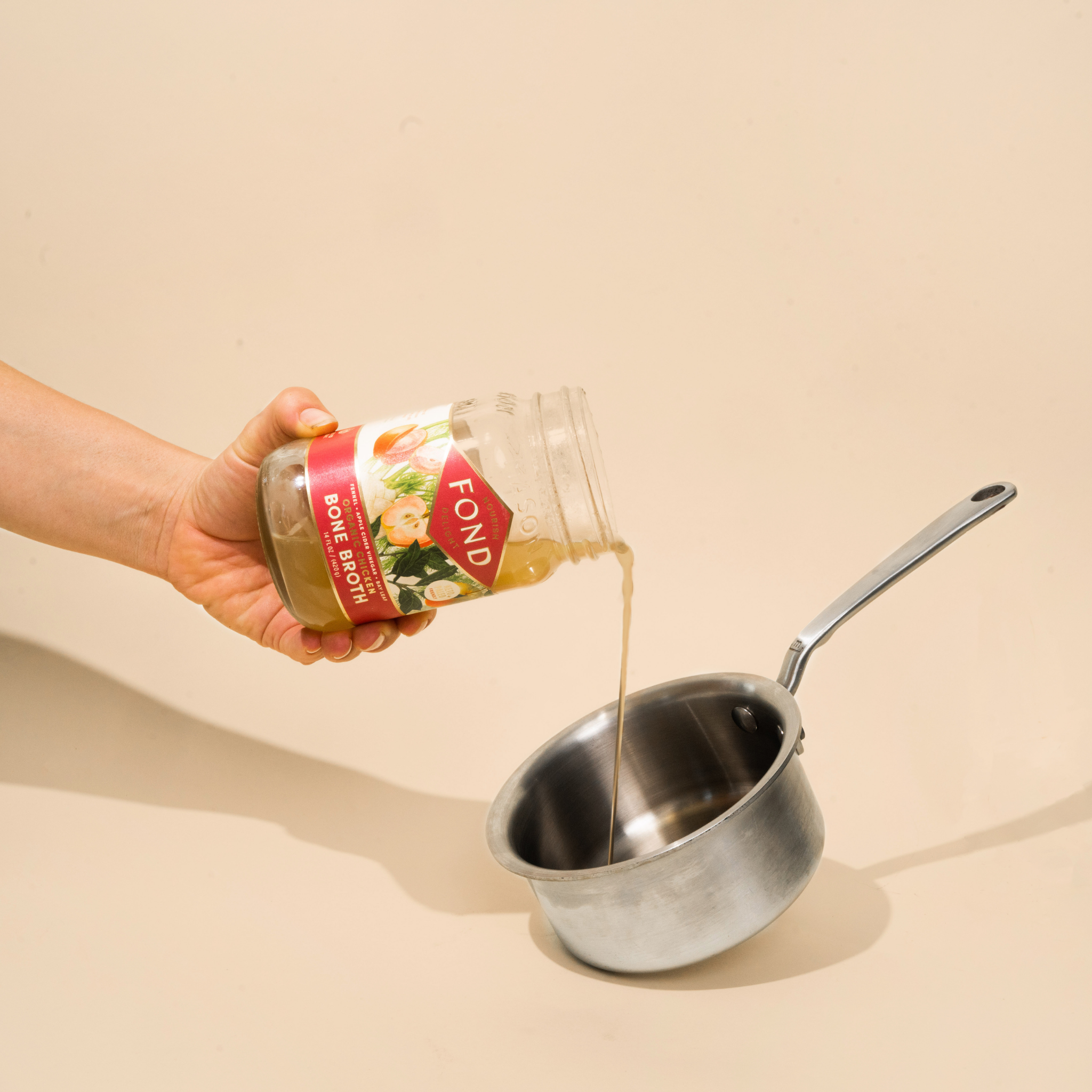With benefits like improved gut health, better sleep, less joint pain, and healthier skin, it's no wonder that people all across the world rely on bone broth as part of their health and wellness routine. And when it comes to FOND, it helps that our bone broth tonics are super easy to sip or cook with, no extra steps required.
Today, we're going to dive into the topic of bone broth fasting, since this practice is gaining in popularity, but it's confusing to know where to begin. We've got you covered with the full scoop on what bone broth fasting is, who it's for, the benefits, and more!
What is a bone broth fast?
Quite simply, it's a fast that involves drinking bone broth throughout the day instead of eating food.
According to one of our incredible practitioners, Ali Miller RD, LD, CDE,
"A bone broth fast is a type of modified intermittent fast that entails consuming bone broth several times per day as a replacement for meals."
If you want to learn even more about bone broth fasting, Ali has an amazingly detailed article on her website.
Unlike water or tea fasts, a bone broth fast can provide your body with essential vitamins, nutrients, and antioxidants, which provide energy and hydration throughout your day. These nutrients, along with the protein broth contains can help you feel less fatigued and more focused as you go through your fast.
Who should do a bone broth fast?
- Someone in an active autoimmune flare
- Someone dealing with digestive distress or recovering from a cold, flu or food poisoning
- Someone with a digestive disorder (like intestinal permeability, inflammatory bowel disease, or IBS)
- Someone who wants to kick off a detox, elimination diet or specific diet like keto
- Someone looking to boost their metabolism and accelerate body fat loss
- Someone struggling with food allergies and sensitivities
- Someone with signs of low immune function, including frequently getting sick, or having asthma and recurring respiratory systems
- Someone with joint pains or arthritis
- Someone looking to gain more energy, improve the appearance of their skin and feel more clear-headed
- Someone who has skin issues such as eczema or psoriasis
Please not that this list should not be considered a substitute for medical advice, diagnosis, or treatment! These are simply a few of the groups who typically benefit from bone broth fasting.
You should avoid a bone broth fast if:
- You are pregnant, nursing, or planning to become pregnant
- You have diabetes or suffer from hypoglycemia (though bone broth can help balance blood sugar)
- You have a history of eating disorders
- You have a low body mass index or are malnourished
Fasting is not suitable for everyone, so we suggest you consult your healthcare provider when considering a bone broth fast.
Benefits of a bone broth fast include:
- Weight loss and weight maintenance
- Improves digestion and promotes a healthy gut due to the abundance of gelatin and amino acids
- Improves sleep and fights brain fog, thanks to the presence of glycine
- Collagen, glucosamine, and chondroitin strengthen tissues, reduce joint pain, and keep hair, skin, and nails healthy
- Soothing to the gut and helps reduce inflammation
- Stabilizes blood sugar
- Reducing risk for diseases like diabetes, cancer and heart complications
How to do a fast:
There are three main types of intermittent fasting approaches: time-restricted fasting/16:8, alternate-day fasting, and the 5:2 diet.
Time-Restricted Fasting or 16:8
This is the most common form of fasting, and is sometimes called time-restricted feeding. As the name suggests, your fasting window is typically 16 hours long and your eating window is 8 hours. The typical structure is to fast from 7pm until the following morning at 11am, and then to eat from 11am - 7pm, but the timing can be flexible to work for your lifestyle.
Alternate-Day Fasting
The goal of this type of fasting is to fast every other day. When doing this type of fast, some will refrain from eating anything at all, only drinking water, unsweetened tea, and coffee, while others will eat about 500 calories on fasting days.
The 5:2 Diet
With the 5:2 format, you eat as you normally would for five days of the week and then restrict your caloric intake, usually below 500 calories, the other two days. Typically, the two 500 calorie days are not consecutive, and have at least one normal day between them. While five days on and two days off is the standard, there are also other options, such as 6:2 and 3:4. Listen to your body and decide which form is right for you.
Ready to start your journey? Stock up on FOND and follow our fasting guide to help get you started!







